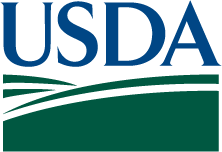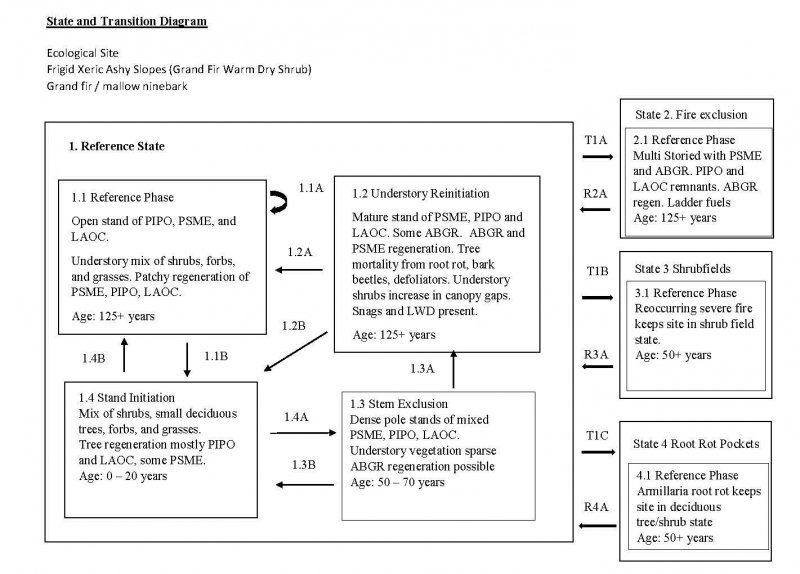
Natural Resources
Conservation Service
Ecological site F043AY522WA
Warm-Frigid, Moist- Xeric Loamy Foothills/Mountainsides, mixed ash surface (Grand Fir Warm Dry Shrub) Abies grandis - Pseudotsuga menziesii / Physocarpus malvaceus - Symphoricarpos albus
Last updated: 10/14/2020
Accessed: 02/27/2026
General information
Provisional. A provisional ecological site description has undergone quality control and quality assurance review. It contains a working state and transition model and enough information to identify the ecological site.
MLRA notes
Major Land Resource Area (MLRA): 043A–Northern Rocky Mountains
Major land resource area (MLRA): 043A-Northern Rocky Mountains
Description of MLRAs can be found in: United States Department of Agriculture, Natural Resources Conservation Service. 2006. Land Resource Regions and Major Land Resource Areas of the United States, the Caribbean, and the Pacific Basin. U.S. Department of Agriculture Handbook 296.
Available electronically at: http://www.nrcs.usda.gov/wps/portal/nrcs/detail/soils/ref/?cid=nrcs142p2_053624#handbook
LRU notes
Most commonly found in LRU 43A04 (Selkirk Mountains). Also found in adjacent areas of 43A02, 43A03, 44A01 and 44A02. Climate parameters were obtained from PRISM and other models for the area. Landscape descriptors are derived from USGS DEM products and their derivatives.
Classification relationships
Relationship to Other Established Classifications:
United States National Vegetation Classification (2008) – A3362 Abies grandis – Pseudotsuga menziesii Central Rocky Mountain Forest & Woodland Alliance
Washington Natural Heritage Program. Ecosystems of Washington State, A Guide to Identification, Rocchio and Crawford, 2015 – Northern Rocky Mountain Mesic Montane Mixed Conifer Forest
Description of Ecoregions of the United States, USFS PN # 1391, 1995 - M333 Northern Rocky Mt. Forest-Steppe-Coniferous Forest-Alpine Meadow Province
Level III and IV Ecoregions of WA, US EPA, June 2010 – 15x Okanogan Highland Dry Forest, 15y Selkirk Mountains, 15v Northern Idaho Hills and Low Relief Mountains.
This ecological site includes the following USDA Forest Service Plant Association: ABRG/PHMA, (Williams et. al. 1995)
Ecological site concept
This ES group is distinguished by an overstory of grand fir and Douglas-fir and an understory shrub component of ninebark, oceanspray, snowberry and /or twinflower. It occurs on loamy foothills, mountainsides, and terraces that have less than 7 inches of volcanic ash deposition. This ES group fits into the National Vegetation Standard’s Grand Fir - Douglas-fir Central Rocky Mountain Forest & Woodland Alliance and Washington State’s Natural Heritage Program’s Northern Rocky Mt. Mesic Montane Mixed Conifer Forest.
Table 1. Dominant plant species
| Tree |
(1) Abies grandis |
|---|---|
| Shrub |
(1) Physocarpus malvaceus |
| Herbaceous |
(1) Calamagrostis rubescens |
Click on box and path labels to scroll to the respective text.
